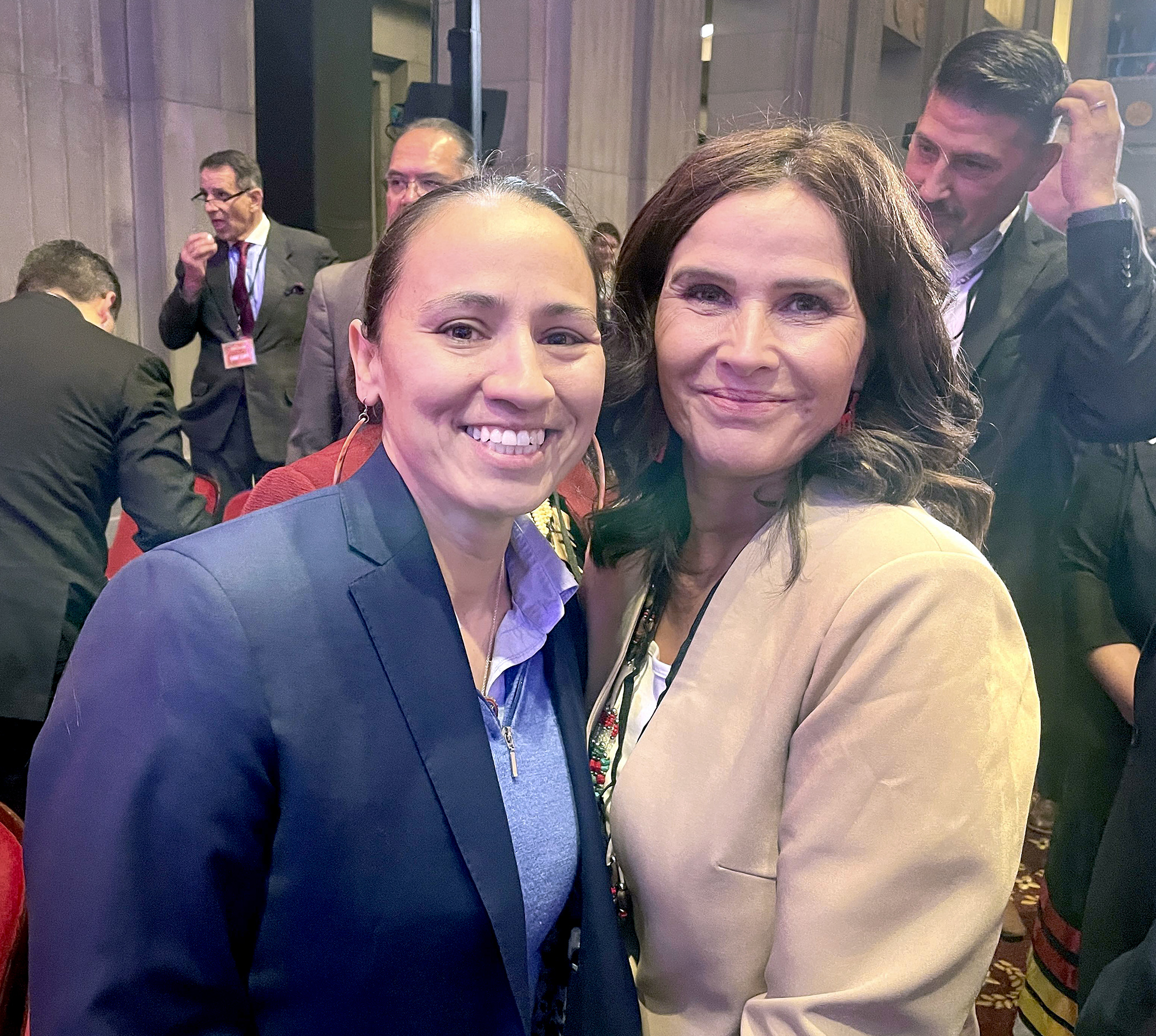Tribal Government & News
Cherry represents Grand Ronde Tribe at Tribal Nations Summit

By Dean Rhodes
Publications coordinator
WASHINGTON – Tribal Council Secretary Michael Cherry represented the Grand Ronde Tribe for the first time at the White House Tribal Nations Summit held Wednesday and Thursday, Dec. 6-7, at the Department of the Interior.
During the summit, the third held since President Biden took office in January 2021, Cherry met Kansas Rep. Sharice Davids (Ho-Chunk Nation of Wisconsin), the second Native American woman elected to Congress after New Mexico’s Deb Haaland, and also met Transportation Secretary Pete Buttigieg after a Department of Transportation panel.
“She was so warm and kind,” Cherry said about Davids. “Leading with kindness. I am so inspired.”
As for Haaland (Pueblo of Laguna), who became the first Native American appointed to a presidential Cabinet in the country’s history as head of the Interior Department, she had to deliver her opening remarks remotely after contracting COVID-19.
“In three years, we’ve made big, challenging and transformative accomplishments, all with representation from all of you,” she said. “This is our third year in office and now things look very different, because we have taken your words and feedback and put them into action.”
Cherry also watched Biden sign an executive order to increase Indian Country access to business capital and listened to a drug use and mental health panel discussion that included White House Office of National Drug Control Policy Director Rahul Gupta, Deputy Secretary of Health & Human Services Andrea Palm, Associate Attorney General Vanita Gupta, Salt River Pima-Maricopa Indian Community President Martin Harvier and Lummi Nation Chairman Tony Hillaire.
“It’s hard work to heal the wrongs of the past and change the course and move forward,” Biden said during his address to Tribal leaders. “But the actions we are taking today are key steps into that new era of Tribal sovereignty and self-determination – a new era grounded in dignity and respect that recognizes your fundamental rights to grow and govern on your own terms. That’s what this summit is all about.”
During the summit, Haaland announced the Biden administration’s commitment to strengthen the nation-to-nation relationship with Tribal Nations, including new efforts to increase Tribal co-stewardship of lands and waters, incorporate Indigenous knowledge into the department’s work, and preserve and protect sacred sites around the country.
“Since time immemorial, the Earth’s lands and waters have been central to the social, cultural, spiritual, mental and physical wellbeing of Indigenous peoples,” Haaland said. “It is essential that we do everything we can to ensure the Indigenous knowledge helps guide our ongoing work as stewards of public lands and waters.
“By acknowledging and empowering Tribes as partners in co-stewardship of our country’s lands and waters, every American will benefit from strengthened management of our federal land and resources.”
During previous White House Tribal Nations Summits held during the Obama administration, the Grand Ronde Tribe was regularly represented by Tribal Council Vice Chair Chris Mercier. There were no Tribal Nations Summits held during the Trump administration.
The White House Tribal Nations Summit is designed to give administration officials and Tribal leaders from the 574 federally recognized Tribes in the United States an opportunity to discuss ways the federal government can invest in and strengthen relationships, as well as ensure progress in Indian Country.
“I am honored to have represented the Confederated Tribes of Grand Ronde at the White House Tribal Nations Summit this year,” Cherry said. “I felt an overwhelming sense of gratitude and thankfulness for the opportunity to be present at this momentous occasion. It was a humbling experience to not only witness the collective power of Tribal leaders coming together to advocate for their communities, but to also witness the President of the United States signing an executive order reaffirming his commitment to support Tribal Nations was awe-inspiring.
“The summit had not only provided a platform for dialogue, but it was also a reminder for all Tribal citizens that our voices matter and that together we can create a brighter future for our communities. Leaving the summit, I carried with me a renewed sense of hope and determination, and my heart is full of gratitude. I thought of our ancestors and the sacrifices that they made for all of us to be there. It really is a testament to the unwavering and resilient spirit of Indigenous people.”
To watch a video of the Tribal Nations Summit, visit the Department of the Interior’s YouTube page at youtube.com/watch?v=OZIDN9OmuxM.
